Do Solar Lights Work in Cloudy or Winter Conditions?
When clouds roll in or winter shortens the days, it’s natural to wonder if your solar lights will still work. Weak sunlight and cold temperatures can make you question whether these eco-friendly lights can keep shining. Let’s break down how solar lights handle cloudy days and winter challenges, plus some tips to keep them glowing.
-1-1024x400.webp)
Cloudy Days Cut Charging
On overcast days, solar lights don’t get the full dose of sunlight they crave. Here’s what happens:
- Reduced efficiency: Cloudy skies can drop charging rates to 20–40% of what you’d get on a sunny day.
- Diffuse light: Solar panels can still capture scattered light, so they’ll charge, just slowly.
- Impact: A light that charges fully in 6 hours of sun might need 12–15 hours under clouds.
The good news? Most modern solar lights are designed to handle this, but performance depends on the panel and battery quality.
Battery Storage Saves the Day
The battery in a solar light is the unsung hero when sunlight is scarce. Here’s why it matters:
- Capacity matters: High-quality lights use lithium-ion batteries that store enough energy to last 2–3 cloudy days.
- Charge retention: A fully charged battery can power a light for 8–12 hours, even with minimal daily charging.
- What to look for: Check the battery’s mAh rating—higher numbers (e.g., 2000mAh vs. 800mAh) mean longer runtime.
A robust battery ensures your solar light stays lit through a stretch of gloomy weather.
Winter’s Cold Bites Batteries
Cold weather can be tough on solar lights, especially the battery:
- Temperature impact: Below 32°F (0°C), lithium-ion batteries lose 10–20% of their discharge efficiency.
- Shorter days: Less daylight in winter means less charging time, often 4–6 hours compared to 8–10 in summer.
- Snow and ice: If the panel gets covered, charging stops completely.
Choosing a light rated for cold climates and keeping the panel clear can make a big difference.
Better Designs Handle Low Light
Not all solar lights are created equal. Higher-end models are built to tackle cloudy and winter conditions:
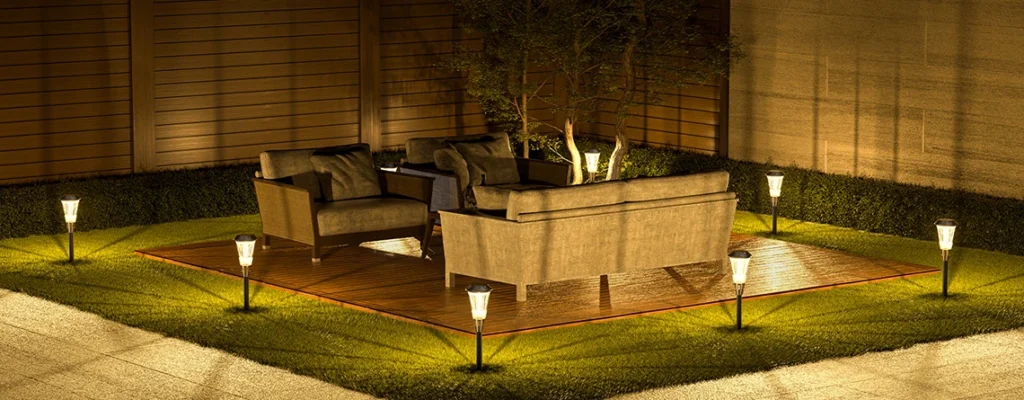
- Low-light tech: Some panels use advanced materials (like monocrystalline silicon) to capture more energy in dim conditions.
- Smart sensors: Motion or dusk-to-dawn sensors reduce power use, stretching battery life.
- Weatherproofing: IP65 or higher ratings ensure the light survives rain, snow, and freezing temperatures.
Spending a bit more on a quality solar light can pay off when the weather turns grim.
Optimize Your Setup
A few tweaks can keep your solar lights performing in tough conditions:
- Adjust the angle: Tilt the panel to catch more sunlight, ideally 30–45° in winter to match the sun’s lower path.
- Clean regularly: Wipe off dust, leaves, or snow to maximize light absorption.
- Clear obstructions: Trim branches or move lights to avoid shadows from buildings or trees.
- Check placement: Ensure the panel gets as much daylight as possible, even on cloudy days.
These small steps can boost charging efficiency significantly.
Stretch Battery Life
You can make your solar light last longer during cloudy or winter days with these tricks:
- Use motion sensors: Lights that only turn on when needed (e.g., for 30 seconds) save energy.
- Lower brightness: Some lights let you adjust output—dimmer settings extend runtime.
- Shorten hours: Set the light to turn off earlier (e.g., midnight instead of dawn) to conserve power.
- Upgrade batteries: If the light allows, swap in a higher-capacity battery for extra juice.
These tweaks help your solar light stay functional even when sunlight is limited.
Reliable Lights Year-Round
With the right solar light and a bit of care, cloudy days and winter won’t leave you in the dark. High-quality models with strong batteries and low-light tech can keep shining through overcast skies and cold snaps. Regular maintenance—like cleaning panels and adjusting angles—ensures steady performance. By choosing a durable light and using energy-saving modes, you can count on your solar lights to brighten your space, no matter the season or weather.




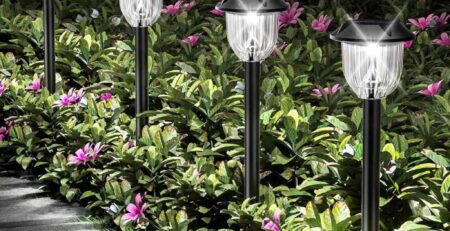
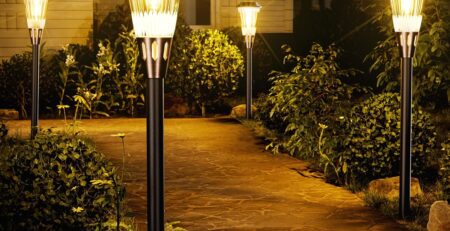
-4-450x231.webp)
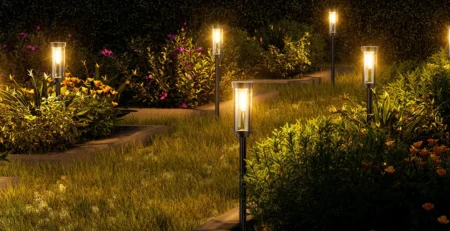
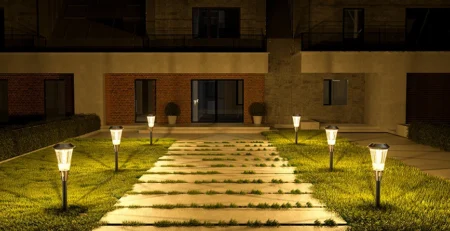
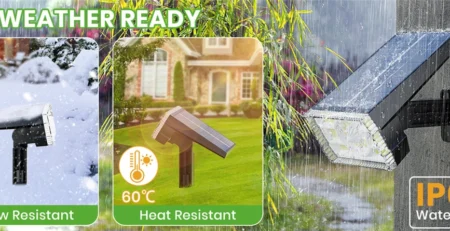
-6-3-450x231.webp)
Leave a Reply